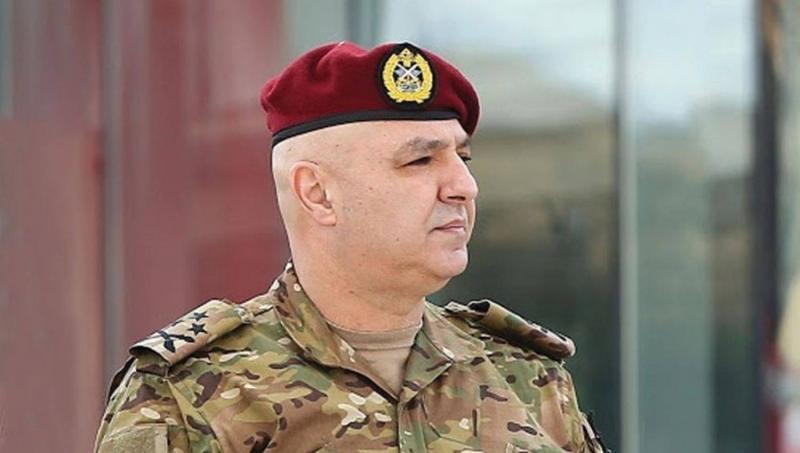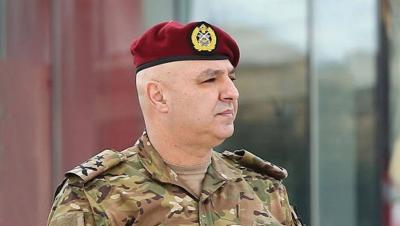The presidential scene in the parliament is not expected to change significantly tomorrow, and no election for the president of the republic is anticipated. This session may witness some breach in the form of a message sent by the head of the "Free Patriotic Movement," MP Gebran Bassil, to "Hezbollah" in response to the presidential message directed by the "party" to its ally during the last cabinet session. Beyond that, there are no changes in the positions of the main parties regarding the presidency. The "sovereign opposition" continues to support the nomination of MP Michel Moawad, while "Hezbollah" is waiting for the appropriate moment to play the card of its candidate, the head of the "Mard" movement, Sleiman Frangieh.
In light of this stalemate and the difficulty of securing at least 65 votes for Moawad, questions arise about the next step for the "sovereign opposition," especially since the head of the "Lebanese Forces," Samir Geagea, previously stated in response to a question that the "Forces" do not oppose the army commander, General Joseph Aoun, becoming president. So, will the "Forces" shift their support from Moawad to the army commander? And when?
The "Forces" remain committed to their presidential plan and will not abandon their support for Moawad's nomination and election. The issue of supporting the army commander has a different approach. Sources from the "Forces" clarify that their position regarding electing the army commander as president came in response to a journalistic inquiry; they have not declared their nomination of General Joseph Aoun or intend to push for his election but rather stated, "If there is a consensus for electing the army commander as president, we will be part of that consensus." However, announcing the "Forces'" nomination of the army commander or any other figure is not on the table for now, as "we would face the same problem of being unable to secure 65 votes for him."
Their sources state, "The candidate we ensure can get 65 votes will receive our support. The issue is not just in naming and jumping from one candidate to another. Therefore, we do not abandon the nomination of Moawad. The essential point is to secure 'the majority plus one' for this candidate. If we are unable to provide this number for him, there is no point in supporting him, in the way the 13 'Change' MPs did. Changing names undermines our credibility and that of the names themselves, especially since we adopted Moawad's name based on the conviction of his potential to secure 65 votes, regardless of whether we succeed in that due to the positions of the remaining components of the opposition."
The "Forces" believe that adopting any candidate other than Moawad does not change the presidential equation, as "the impasse regarding the presidential entitlement is due to the position of the other side. As long as 'Hezbollah' does not want a president due to its conflicts, proposing any names is futile. The arrival of the army commander to the presidency will only happen with a broad general consensus after 'Hezbollah' drops its nomination of Frangieh and begins searching for other names; at that point, consensus on these names, including the army commander, will be possible."
Furthermore, the election of the army commander as president will only occur with a dual settlement both internally and externally, which may include demands from "Hezbollah" or ensure "the protection of the resistance’s back," which would lead to this term aligning with the "party." Consequently, the "Forces" would have contributed to bringing in a president who would accommodate "Hezbollah" and its role or be constrained by its conditions, yet the "Forces" do not fear this scenario. Their sources say, "We are not afraid of anything; we focus on the country's priorities. We have no issue with remaining in the opposition and preserving our political positioning; the most important thing for us is to limit the influence of March 8 within institutions, especially the presidency. This is fundamental for us."
It is unlikely for the individual to change, based on a specific previous path, which this path cannot change through a settlement, especially since the army commander can only reach the presidency as a result of broad and significant consensus. If achieved, the "Forces" consider that "Hezbollah" would have lost merely by abandoning its candidate, leading to a new situation that brings everyone to converge on another name.
Since Geagea stated that he does not oppose the army commander becoming president based on his leadership of the military institution and his dealings with sensitive issues that the Army has successfully overcome under General Joseph Aoun’s leadership, some from the "resistance axis" have attempted to create a rift between the "Forces" and the army commander by recalling past issues between the two parties dating back to the war and promoting the idea that the army commander would settle old scores with Geagea once he assumes the presidency. These "theories" hold no value for the "Forces," as if the army commander had a problem with the "Forces," he would have acted during the events in Tayouneh and thereafter as "the party" wanted him to act.
Furthermore, returning to discussions about war phases reflects a mentality aimed, from the "Forces'" perspective, at "discrediting the army commander and the military institution, as well as the minds of the Lebanese, whereas the war ended 35 years ago, and most Lebanese are looking forward, not backward."




